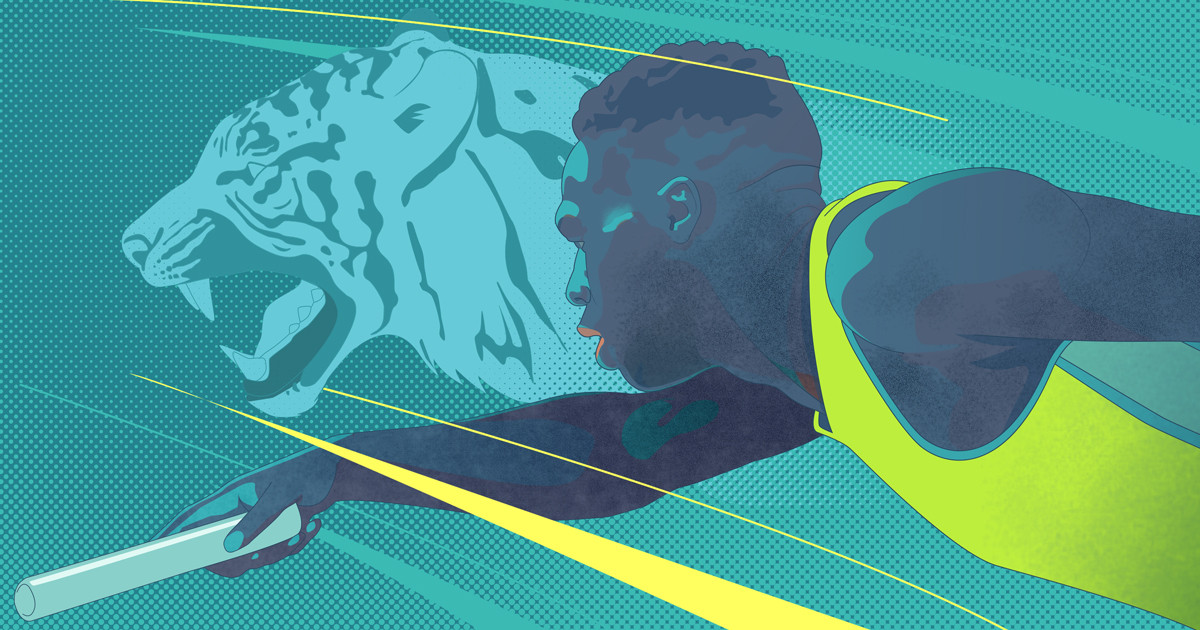HOW TO PROGRAM THE BRAIN TO PERFORM

Three major elements come into play in knowing how best to train the mind in order to increase physical performance.
INCREASING DESIRE TO WIN
In coaching, this element will translate for example into "reminding a player that his successes could lead to a scholarship. "
OVERCOMING OBSTACLES THROUGH PERSISTENCE
If an obstacle cannot be avoided or overcome, the athlete must find a way to persevere and continue, even if the obstacle remains in place. For example, if the obstacle is pain that consumes the athlete’s attention, the athlete must find a way to be less bothered by the pain. Famous trainer Percy Cerutty urged his runners to "love the pain". The contemporary slogan "No pain, no gain" follows a ismilar concept.
INCREASE CONFIDENCE
Psychologist Shlomo Breznitz
explains in his book “Sport, Ethics and Philosophy 9” that
"the human brain does not want the body to spend its resources unless there is a reasonable chance of success. "
Our physical strength is not accessible to us if our brain does not believe in the result, because the worst thing for a human being to do is to spend all his resources and fail. If we don't believe we can do it, we won't get [from our body] the [energy] resources to get there. Getting an athlete to want to run faster is a difficult challenge. Getting an athlete to believe in his or her ability to run faster is a more accessible task for coaches and motivators. "
LEARN TO SELF-MOTIVATE
Judy Van Raalte, professor of psychology at Springfield College, Massachusetts has done a study that has looked in detail at self-talk in sports. "If I use a self-talk that will make people feel more confident, it will have a very good result." Rather, the professor places importance on the emotion that the athlete feels, but defines internal dialogue, a psychological tool, as being an element capable of generating the desired emotion. She therefore considers that self-talk helps athletes to become mentally stronger. It divides interior speeches into two systems:
System 1: Automatic reaction.
Example: An athlete exclaims "I am the best" after a victory.
System 2: What athletes say to themselves on a voluntary basis.
Example: "I'm going to focus more".
According to Professor Van Raalte, this second type of interior speech helps athletes to focus or increase their motivation, but leaves enough attentional resources for the sporting task at hand.
Self-talks that are in harmony with the athlete's self-perception and energy level have shown better results.
For example, an excited or anxious athlete will tell themself "I can do it" rather than lying and trying to pretend "I am calm" when he clearly is not.
An important point from Professor Van Raalte's study reveals that another key element of interior discourse is that it is appropriate; that it doesn't seem forced or too strange; too detached from the real situation.
VISUALISATION
It was only recently that we began to talk about positive visualization in sports. If the performances of Russian athletes at the 1984 Olympic Games are a strong example, the thought has certainly not been abandoned. Doctor Thomas Newmark explains in one of his works that today, both neuroscientists and sports psychologists use visualisation techniques with their patients to influence them towards positive biological results and performances. The medical community has taken an approach that, rather than emphasizing perfect scores or the fastest times, attempts to address anxiety in athletes. One of the therapy methods that Doctor Newmark offers is made up of these three elements:
- Progressive relaxation of the muscles;
- Visualisation of competition success;
- Hypnotic suggestions.
SLEEP
Although improving performance now requires better knowledge of the athlete’s psychology, the rest of the mind should not be overlooked either. Sleep is a basic need for every human being, but it is even more important for athletes. According to Harvard Health, sleep disorders are closely linked to a number of issues including anxiety, bipolar disorder, attention deficit disorder and depression. Treating these disorders has been proven to work and sleep hygiene strategies are now an integral part of coaching strategies and recommendations.
Publicité